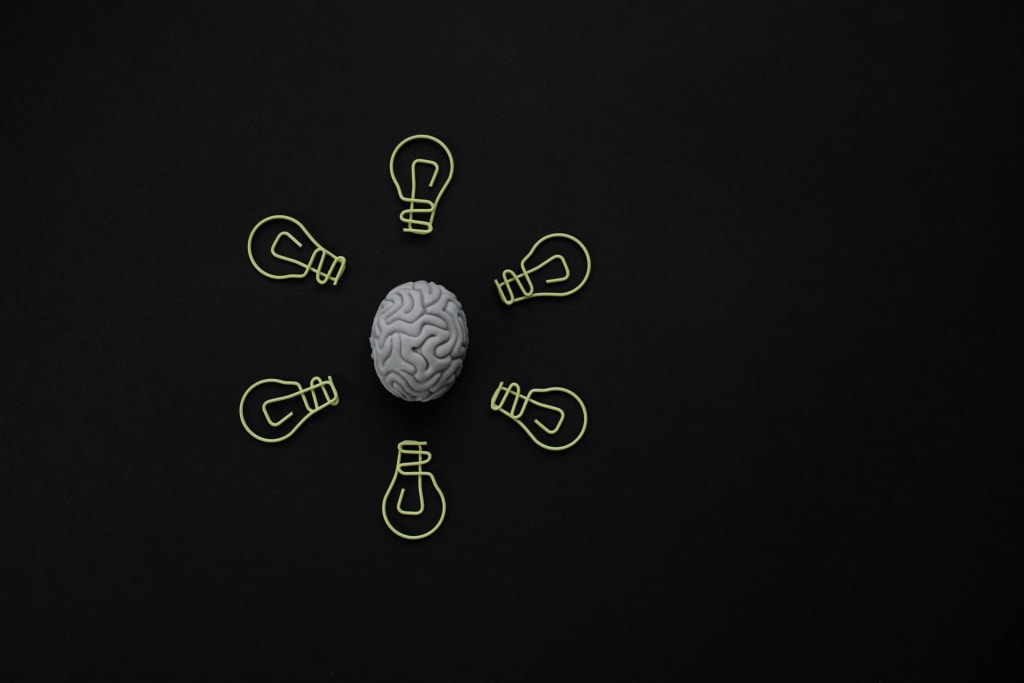Fixed Mindset and Growth Mindset: Unleashing Your Potential
MINDSET

In today's fast-paced and competitive world, the way we perceive ourselves and approach challenges can significantly impact our personal growth and success. Our mindset, or our fundamental beliefs about intelligence, abilities, and potential, plays a crucial role in shaping our behaviors, attitudes, and achievements. Understanding the difference between a fixed mindset and a growth mindset can empower us to overcome obstacles, embrace learning, and unlock our full potential.
Understanding Mindset
Mindset refers to the underlying beliefs and attitudes we hold about our abilities, intelligence, and potential for growth. It shapes the way we approach challenges, setbacks, and opportunities. Two primary mindsets are commonly discussed: the fixed mindset and the growth mindset.
Fixed Mindset Explained
A fixed mindset is characterized by the belief that our abilities, intelligence, and talents are fixed traits that cannot be significantly developed or changed. People with a fixed mindset tend to believe that their qualities are predetermined, leading them to avoid challenges, give up easily, and feel threatened by the success of others.
For example, imagine a student with a fixed mindset who believes that their intelligence is fixed. When faced with a difficult math problem, they might give up quickly, thinking they are just not "math people." They perceive failures as a reflection of their inherent limitations rather than an opportunity for growth.
Growth Mindset Explained
In contrast, a growth mindset is the belief that our abilities and intelligence can be developed through dedication, effort, and a willingness to learn. Those with a growth mindset see challenges as opportunities for growth, embrace setbacks as valuable learning experiences, and are inspired by the success of others.
Consider a student with a growth mindset encountering the same challenging math problem. Instead of giving up, they view it as an opportunity to learn and improve. They understand that with effort, practice, and the right strategies, they can develop their mathematical skills and eventually solve similar problems.
Benefits of a Growth Mindset
Adopting a growth mindset can bring numerous benefits to our personal and professional lives.
Personal Development
A growth mindset fosters a love for learning and personal development. It enables individuals to continuously expand their knowledge, skills, and abilities. By embracing challenges and seeking opportunities to grow, individuals with a growth mindset unlock their potential and reach new levels of achievement.
Overcoming Challenges
A growth mindset empowers individuals to face challenges head-on. Rather than being discouraged by setbacks or failures, they see them as stepping stones to success. They approach difficulties with perseverance and resilience, knowing that effort and learning can lead to improvement.
Improved Resilience
With a growth mindset, individuals develop resilience and bounce back from setbacks stronger than before. They understand that failure is not a permanent state but rather an opportunity to learn, adapt, and grow. This resilience helps them navigate life's obstacles and thrive in the face of adversity.
Cultivating a Growth Mindset
Developing a growth mindset is within everyone's reach. Here are some strategies to cultivate a growth mindset:
1. Embrace Challenges
Instead of shying away from challenges, actively seek them out. Embracing challenges allows you to stretch your abilities, learn new things, and discover your true potential.
2. Emphasize Effort and Learning
Shift your focus from seeking validation based on outcomes to valuing effort and the process of learning. Understand that effort, practice, and continuous learning are the keys to growth and improvement.
3. Seek Feedback and Learn from Failures
View feedback as an opportunity for growth and learning. Embrace constructive criticism and learn from your mistakes. Reflect on failures and setbacks to identify areas for improvement and develop new strategies.
4. Surround Yourself with Positive Influences
Surround yourself with individuals who have a growth mindset. Seek out mentors, coaches, and supportive friends who inspire and challenge you to grow. Their positive influence can reinforce your belief in your ability to develop and achieve.
The Impact of Mindset in Education
Mindset plays a vital role in the field of education, influencing students' motivation, engagement, and academic achievement.
Fixed Mindset in Education
A fixed mindset in education can limit students' willingness to take on challenges and embrace learning opportunities. Students may avoid subjects they perceive as difficult or lose motivation when faced with setbacks, believing they lack the innate abilities to succeed.
Growth Mindset in Education
On the other hand, a growth mindset fosters a love for learning and resilience in the face of academic challenges. Students with a growth mindset understand that intelligence is not fixed and that their effort and strategies can lead to improved performance. They are more likely to persist through difficulties, seek help when needed, and achieve higher levels of academic success.
Mindset in the Workplace
Mindset also plays a crucial role in professional settings, influencing how individuals approach their work, tackle challenges, and interact with colleagues.
Fixed Mindset at Work
A fixed mindset at work can hinder career growth and limit innovation. Employees may resist taking on new responsibilities or projects, fearing failure or judgment. They might shy away from seeking feedback and miss opportunities for professional development.
Growth Mindset at Work
In contrast, a growth mindset in the workplace drives individuals to embrace challenges, continuously learn and improve, and adapt to changing circumstances. Employees with a growth mindset are more likely to take on new tasks, seek feedback, collaborate effectively, and contribute to a positive and innovative work culture.
Conclusion
In summary, understanding the difference between a fixed mindset and a growth mindset is crucial for personal and professional development. A growth mindset empowers individuals to embrace challenges, persist through setbacks, and continuously learn and improve. By cultivating a growth mindset, we can unlock our full potential, achieve greater success, and lead fulfilling lives.
FAQs
What is the difference between a fixed mindset and a growth mindset?
A fixed mindset believes that abilities and intelligence are fixed traits, while a growth mindset believes they can be developed through effort and learning.
Can a person have a fixed mindset in one area of their life and a growth mindset in another?
Yes, mindset can vary across different areas of life. It's possible to have a fixed mindset in one domain while maintaining a growth mindset in another.
How can I develop a growth mindset?
You can develop a growth mindset by embracing challenges, valuing effort and learning, seeking feedback, and surrounding yourself with positive influences.
Can a growth mindset help with career advancement?
Absolutely! A growth mindset encourages continuous learning, resilience, and adaptability, which are essential for career advancement and personal growth.
Can a fixed mindset be changed?
Yes, with self-awareness and deliberate effort, a fixed mindset can be transformed into a growth mindset. It takes practice, but it is possible to change your mindset and unleash your potential.
About the Creator
Karim Mossa
mmmm






Comments
There are no comments for this story
Be the first to respond and start the conversation.